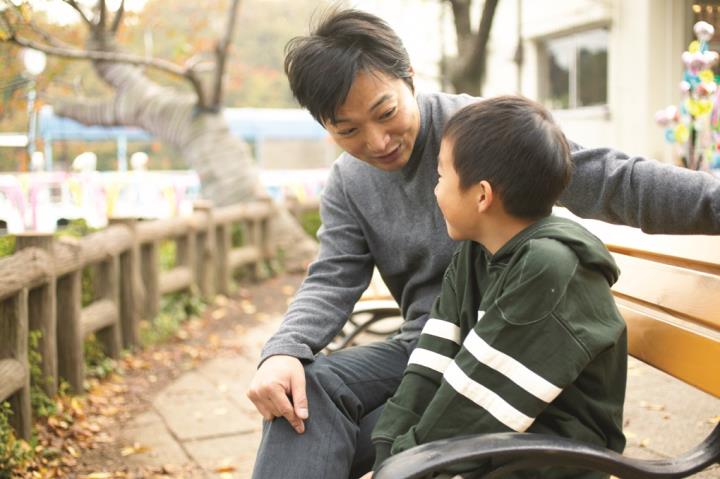Effective Strategies for Tough Talks With Children
When discussing tough topics with kids, focus on establishing trust and comfort by creating a safe and open space. Pick the right time and place, avoiding strong emotions. Use language suited to their age and keep it simple. Listen actively, showing understanding and empathy. Encourage questions and discussions to let them express freely. Offer reassurance and support through active listening and validation. Remember, seeking professional help is okay if needed. By employing these strategies, you can foster better communication with children and address challenging subjects effectively.
Key Takeaways
- Establish trust and rapport before tough talks.
- Choose a calm, neutral setting for discussions.
- Use age-appropriate language and explanations.
- Practice active listening and validate their feelings.
- Provide reassurance, support, and seek professional help when needed.
Establishing Trust and Comfort

Building trust with your child begins by creating a safe and open environment where they feel comfortable expressing their thoughts and feelings. Establishing rapport is vital in tough talks. By actively listening to your child without judgment, you show them that their emotions are valid and respected.
Encourage open communication by being present and attentive when they want to talk. Validate their feelings and let them know that it’s okay to express themselves honestly.
Creating a safe space involves setting boundaries and emphasizing confidentiality. Let your child know that they can trust you with their thoughts and that you’ll respect their privacy.
Building this foundation of trust will make it easier for them to open up about challenging topics and seek your guidance when needed. Remember, trust is a two-way street. By being trustworthy and reliable, you strengthen the bond between you and your child, making tough talks more manageable.
Choosing the Right Timing

To have effective tough talks with children, it’s important to carefully choose the right timing for these conversations. Creating a quiet environment and a relaxed atmosphere is essential for ensuring that your child feels comfortable and open during the discussion. Selecting a neutral ground, such as a private space where your child feels secure, can help them focus on the conversation without distractions.
When deciding on the timing for these talks, consider moments when both you and your child are calm and not rushed. Avoid bringing up difficult topics during times of heightened emotions or when either of you is preoccupied with other responsibilities. Instead, choose a time when you can give your child your full attention and when they’re likely to be receptive to having a meaningful conversation.
Using Age-Appropriate Language
When talking to children about tough topics, it’s essential to use language that they can understand. Tailoring your communication to be child-friendly can help them grasp complex concepts more easily.
Child-Friendly Language Tips
Engaging children in tough talks involves utilizing language that’s tailored to their age and level of understanding. When adopting a child-friendly approach, it’s important to use age-appropriate explanations that resonate with their developmental stage. Children grasp concepts differently based on their age, so it’s vital to simplify complex ideas in a way that matches their comprehension level.
For younger children, use concrete examples and avoid abstract terms. For instance, instead of saying ‘financial difficulties,’ you could explain it as ‘having less money for things we need.’ This helps them relate to the situation better.
With older children, you can explore deeper into discussions using more detailed language, but always make sure to check for their understanding along the way.
Tailoring Communication for Kids
Using age-appropriate language when communicating with kids is essential for guaranteeing they can fully understand and engage in conversations effectively. To make tough talks more digestible for children, consider incorporating playful engagement and visual aids. Utilizing creative storytelling can help simplify complex topics and make them more relatable. Interactive games can also be a valuable tool to facilitate discussions in a fun and interactive manner.
By tailoring your communication to match a child’s developmental stage, you can guarantee that they grasp the information being presented. Younger children may benefit from simple language and concrete examples, while older kids can handle more detailed explanations. Visual aids like drawings, diagrams, or even puppets can enhance comprehension and make the conversation more engaging.
Incorporating these strategies can’t only make tough talks easier for children but also create a more positive and open environment for communication. Remember, using age-appropriate language isn’t just about simplifying words but also about fostering understanding through creative and interactive means.
Active Listening and Validation

Practicing active listening and validation is essential in fostering open communication with your children. Reflective listening involves paraphrasing what your child says to show understanding, while empathetic responses convey that you recognize and acknowledge their feelings.
When engaging in tough talks, it’s vital to validate your child’s emotions. By acknowledging their perspective and experiences, you create a safe space for them to express themselves honestly.
Understanding cues from your child is vital during these conversations. Pay attention to their body language, tone of voice, and facial expressions. These non-verbal cues can provide valuable insights into how they’re feeling and what they may not be verbalizing.
Responding to these cues with empathy and validation can strengthen your bond and encourage your child to share more openly.
Active listening and validation show your child that their thoughts and feelings are important and respected. By incorporating these strategies into your tough talks, you can build trust and deepen your connection with your child.
Encouraging Questions and Discussion

Encouraging questions and fostering open dialogue with your children is essential in building a strong foundation for communication.
By creating a safe space where curiosity is welcomed, you can help your child feel comfortable expressing their thoughts and emotions.
Embrace their inquiries with patience and understanding, paving the way for healthy discussions and deeper connections.
Open Lines for Questions
To foster open lines for questions with children, establish a safe and welcoming environment where curiosity is encouraged and discussions are valued. Children thrive in environments that promote curiosity exploration and provide a comfortable space for them to ask questions freely. Make sure that your child feels safe to express their thoughts and concerns, fostering open communication by actively listening and responding without judgment.
Encourage a culture of open dialogue by initiating conversations that invite questions. When discussing tough topics, reassure your child that they can ask anything and that their questions are important. Create opportunities for them to share their thoughts and feelings openly, reinforcing the idea that their voice matters.
Model curiosity and openness by asking your child thought-provoking questions, demonstrating that it’s okay to seek understanding. By creating a safe space for questions and discussions, you lay the foundation for healthy communication and a strong bond with your child.
Foster Healthy Dialogue
Create a nurturing atmosphere where your child feels comfortable expressing their thoughts and asking questions freely. Building rapport and creating boundaries are essential in fostering healthy dialogue with your child. Setting expectations from the beginning can help establish a foundation of trust and openness. Encourage honesty by being a role model yourself, showing that it’s okay to ask questions and share feelings.
When engaging in tough talks with your child, make sure to listen actively and validate their emotions. This can help them feel heard and understood, promoting a more open dialogue.
Avoid judgmental responses and instead, try to empathize with their perspective.
Embrace Curiosity Together
When having tough talks with your child, embracing curiosity together by encouraging questions and discussions can deepen your bond and understanding.
Exploring interests and sparking curiosity can make these conversations more engaging and productive. By fostering an environment where questions are welcomed, you show your child that their thoughts and feelings are valued. This approach not only helps them feel heard but also promotes critical thinking and problem-solving skills.
When your child asks questions, take the time to listen actively and respond thoughtfully. Encourage them to share their perspectives and ideas openly. This not only helps them feel supported but also allows for a more enriching dialogue. By engaging in these discussions, you can gain insights into your child’s thoughts and emotions that they may not have expressed otherwise.
Remember that tough talks aren’t just about delivering information but also about building a trusting relationship with your child. Embracing curiosity together creates a safe space for open communication and strengthens your connection with your child.
Providing Reassurance and Support

Offer your child reassurance and support during tough conversations by being present and actively listening to their feelings and concerns. Creating a safe emotional space for your child is essential in helping them navigate difficult topics.
Begin by acknowledging their emotions and validating their feelings. Let them know that it’s okay to feel the way they do and that you’re there to support them.
Reassurance techniques such as offering physical comfort through hugs or holding their hand can provide a sense of security. Use gentle and soothing words to reassure them that they’re loved and that you’re there to help them through whatever challenges they may be facing.
Encourage open communication by showing empathy and understanding without judgment.
Seeking Professional Help When Needed
If providing reassurance and support isn’t sufficient, don’t hesitate to seek professional help when needed to guarantee your child receives the appropriate guidance and care. Therapy options and counseling resources can provide invaluable support for both you and your child during challenging times.
Therapy can offer a safe and confidential space for your child to express their feelings and work through difficult emotions with a trained professional. A therapist can help your child develop coping strategies, improve communication skills, and navigate complex situations in a healthy way.
Additionally, counseling resources can equip you with the tools and knowledge to better support your child’s emotional well-being.
When considering therapy options, finding a qualified and experienced therapist who specializes in working with children is crucial. They can tailor their approach to meet your child’s specific needs and ensure they receive the best possible care.
Frequently Asked Questions
How Can I Address Sensitive Topics Without Overwhelming My Child?
Address sensitive topics without overwhelming your child by taking a gentle approach. Make discussions age-appropriate, fostering open communication and trust. Encourage questions and provide reassurance. Listen actively, validate feelings, and offer support throughout the conversation.
What Do I Do if My Child Refuses to Engage in the Conversation?
When your child refuses to engage, try active listening and gentle prompting. Show patience and understanding. Create a safe space for them to open up when they’re ready. Remember, building trust takes time.
Should I Involve Other Family Members in Tough Talks?
When handling tough talks with your child, involving other family members can provide valuable support and different perspectives. However, remember that parental guidance and setting boundaries are essential for effective communication within the family dynamic.
How Can I Handle My Own Emotions During Difficult Conversations?
During tough conversations, practice mindfulness by staying present and aware of your emotions. Utilize emotional regulation techniques like deep breathing or taking a break to calm down. Acknowledge your feelings but don’t let them overpower the discussion.
What if My Child Asks a Question I’m Not Prepared to Answer?
If your child asks a question you’re not ready for, stay calm. Open dialogue is key. Be honest if you don’t know the answer. Redirect the conversation or do some quick research together to find out.
Conclusion
To sum up, when having tough talks with children, remember to:
- Establish trust
- Choose the right timing
- Use age-appropriate language
- Actively listen
- Encourage discussion
- Provide reassurance
- Seek professional help if needed.
By following these effective strategies, you can navigate difficult conversations with your child in a supportive and understanding manner.
Remember, open communication is key in building a strong and healthy relationship with your child.

Chad Adan Kace, a young dad from Vermont, shares his parenting journey with a touch of humor and lots of love. Father to a lively baby, he explores the joys and challenges of fatherhood through his stories.







